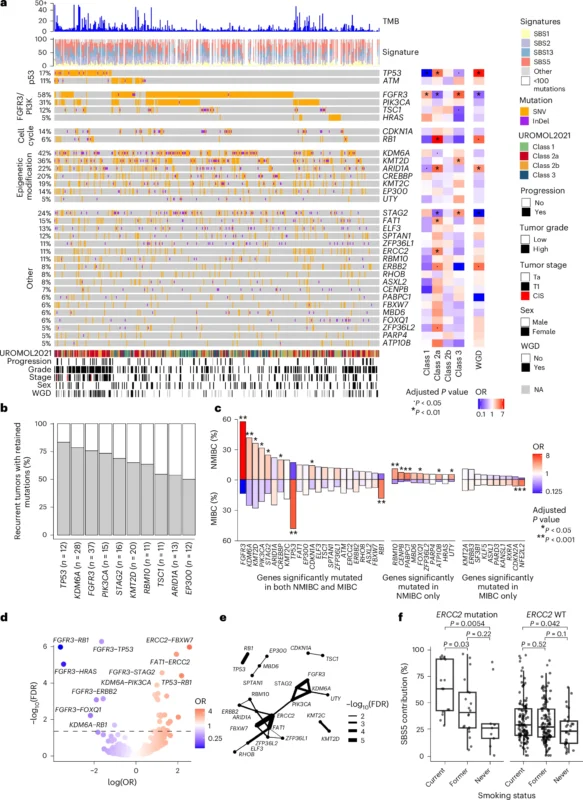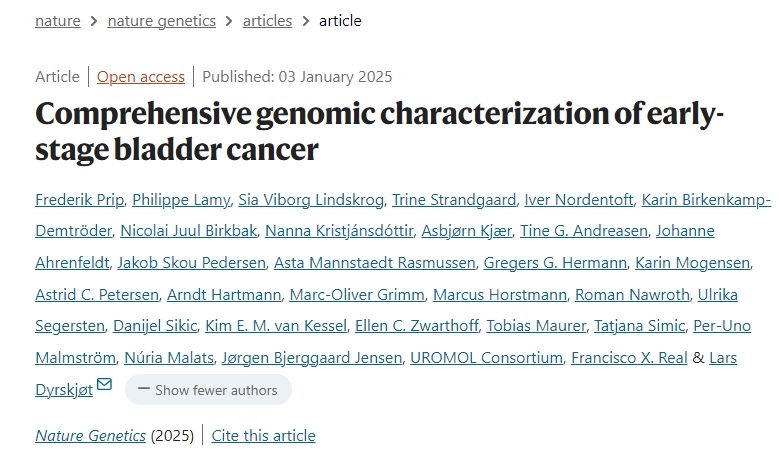
James P. Crowley: Tumors with WGD to refer to tumors with high copy numbers
James P. Crowley, Professor of Medicine emeritus at Brown University, shared a recent article on LinkedIn by Wafik S. El-Deiry, Associate Dean for Oncologic Sciences at the Warren Alpert Medical School, adding:
“Tumors with WGD (for simplicity, we will use the term whole-genome doubling (WGD) to refer to tumors with high copy numbers.
Tumors were classified as having WGD if >50% of the genome had a copy number >2 (n = 54; 15%; Fig. 2b)23. or showed an altered immune cell composition with, for example, high levels of neutrophils.
Neutrophils have a dual role in the tumor microenvironment with both protumorigenic and antitumorigenic activities40.
Although the estimated levels of CTLs were similar between molecular subgroups, the level of T cell exhaustion was higher in iClus4 and tumors with WGD, suggesting impaired immune functionality as another potential mechanism of immune evasion.
The high neoantigen load, likely caused by genomic instability in these tumors, may drive T cell exhaustion as has previously been described.
Moreover, T cell exhaustion has been associated with disease aggressiveness in BCG-treated patients with NMIBC8, and here we document that it may have a role in tumor aggressiveness in NMIBC overall, suggesting a need for identifying patients with aggressive tumors (iClus4 and/or WGD) for improved treatment stratification.
Several clinical trials are currently ongoing investigating the impact of immune checkpoint inhibitors in NMIBC42, and this study demonstrates the biological rationale for this oncological treatment.”

“Comprehensive genomic characterization of early-stage bladder cancer“
Authors: Frederik Prip, Philippe Lamy, Sia Viborg Lindskrog, Trine Strandgaard, Iver Nordentoft, Karin Birkenkamp-Demtröder, Nicolai Juul Birkbak, Nanna Kristjánsdóttir, Asbjørn Kjær, Tine G. Andreasen, Johanne Ahrenfeldt, Jakob Skou Pedersen, Asta Mannstaedt Rasmussen, Gregers G. Hermann, Karin Mogensen, Astrid C. Petersen, Arndt Hartmann, Marc-Oliver Grimm, Marcus Horstmann, Roman Nawroth, Ulrika Segersten, Danijel Sikic, Kim E. M. van Kessel, Ellen C. Zwarthoff, Tobias Maurer, Tatjana Simic, Per-Uno Malmström, Núria Malats, Jørgen Bjerggaard Jensen, UROMOL Consortium, Francisco X. Real and Lars Dyrskjøt

James P. Crowley is a Professor of Medicine Emeritus at Brown University and serves as a volunteer physician at the Rhode Island Free Clinic. He has held leadership positions in the medical community, including past President of the Rhode Island Medical Society and the last President of The Providence Medical Association.
Wafik S. El-Deiry, MD, PhD, FACP, FRSM, is the Associate Dean for Oncologic Sciences at the Warren Alpert Medical School Director of the Legorreta Cancer Center at Brown University and Director of the Joint Program in Cancer Biology at Brown University and affiliated hospitals. He is the Editor in Chief at Oncotarget. Dr. El-Deiry discovered p21(WAF1) as a p53 target gene, cell cycle inhibitor, and tumor suppressor that explained the mammalian cell stress response. Dr. El-Deiry’s research is focused on mechanisms of therapy resistance with major efforts in drug discovery and development.
More posts featuring James P. Crowley and Wafik S. El-Deiry.
-
ESMO 2024 Congress
September 13-17, 2024
-
ASCO Annual Meeting
May 30 - June 4, 2024
-
Yvonne Award 2024
May 31, 2024
-
OncoThon 2024, Online
Feb. 15, 2024
-
Global Summit on War & Cancer 2023, Online
Dec. 14-16, 2023
